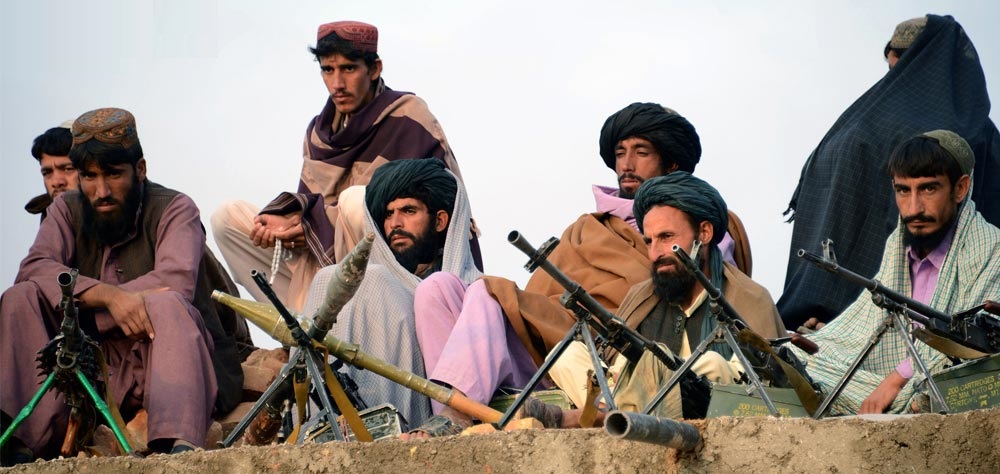(AhlulBayt News Agency) - The Pakistani officials have recently warned the leaders of Taliban that the militant group must inform Islamabad of its contacts with Afghanistan for peace process or its members and their families will be expelled out of the Pakistani territories. This sharp warning to the Taliban comes as the US begins building up strains on Pakistan, particularly the country’s army, to convince it to seriously take actions against extremist groups and quit its double-standard policy. A policy according to which Islamabad offers support to some militant groups such as Taliban and Haqqani Network in Afghanistan but at the same time brands Pakistani branch of Taliban as terrorist group.
The US is pressing Pakistan to make sure that Islamabad will treat all militant groups equally and without preferences and not to break Taliban in “good Taliban and bad Taliban.” The fact is that the US pressures on Pakistan have gradually worked as the Pakistani army had to begin moving towards main headquarters and strongholds of the militant groups in North Waziristan province and waged a fierce war against those concentrated there including al-Qaeda, Taliban, Haqqani Network, Uzbek groups, Tajik groups, and Indonesian and Indian Islamist movements. At the time being, the Pakistani military claims that it has to a large extent destroyed the command centers of these groups and tightened its grip on North Waziristan.
But this move by the army was not enough for the Americans and so they kept pressures on Pakistan with a special focus on Taliban. Earlier this year, four rounds of negotiations were held between the US, China, Afghanistan, and Pakistan over peace in Afghanistan but yielded no results. In the fourth round the Pakistani negotiators vowed to force the militant group to join the peace dialogue with Afghanistan. Taliban proved it was resistant to this Islamabad's demand, however. Since then, the militant group tried to move out of control of Pakistan’s Inter-Services Intelligence (ISI), the Pakistani army’s intelligence service. To this end, Taliban reactivated its political office in Qatar. The news reports suggested that Taliban recently sent a delegation to Pakistan to talk to the Pakistani authorities. The Pakistani army’s issuing a statement and demanding the Taliban to reach a settlement followed the visit of the militant group’s Qatar-based delegation to Islamabad.
It appears that the negotiations did not come out with results as Islamabad expected, and actually Taliban has a feeling that Pakistan can no longer be a safe haven for it, especially that a number of Taliban’s leaders who were members of Quetta Council— or Quetta Shura— were detained in Balochistan province. This event to some degree sounded the alarms for the Taliban. Even now there are reports that Taliban is relocating its command centers and leadership from Quetta, the capital of Balochistan, to Helmand province in Afghanistan. To this end, it stepped up pressures and launched operations against the government forces in Helmand but the conditions were not yet suitable for this relocation.
Meanwhile, Pakistani army’s warning that Taliban must join the peace talks with the Afghan government or be ready for fighting indicates that friendly relations between the two are ending. The Pakistanis have made their decisions and want the US military and financial aids back. Washington has withdrawn financial aids promises to Islamabad and at the same time suspended delivery of pre-paid F-16 fighter jets to Pakistan. Washington stipulated that Pakistan must convince Taliban to attend the negotiating table before allowing the aids and fight jets delivery to go ahead. It seems that this warning is the last chance of Taliban to join the peace talks. If Pakistan stops backing the militant group, it will certainly be in a weak position and so will not realize its goals.
Pakistan's recent stance will have positive outcomes because it will boost the Afghan national reconciliation. The Afghan President Ashraf Ghani is optimistic that after reaching the recent agreement with Gulbuddin Hekmatyar, the leader of Hezb-e Islami, he can take the same way to strike a deal with Taliban in a bid to put an end to the long-term conflict in the country. Once this plan succeeds, Taliban will transform to a political party. This means that it will find opportunity to test chance for gaining power in politics through political activity rather than through military struggle.
But it is too early to make speculations on if Taliban can have the capacity to enter a peace deal with the Afghan government because the militant group still has its own special conditions and eyes gaining a full control of Afghanistan. Currently nearly 30 percent of Afghanistan’s territory is held by Taliban and it is now involved in clashes with the government forces in 23 provinces. So, it is not in a weak position at the present time. Besides, it seems that Pakistan helps Afghanistan’s Taliban to get involved in peace negotiations from a “militarized position” to guarantee more concessions from Kabul. Because any privileges Taliban wrests from Afghanistan in the country’s power structures will be beneficial to Pakistan.
/129
source : Al Waqat
Monday
7 November 2016
6:47:53 AM
790300

Currently nearly 30 percent of Afghanistan’s territory is held by Taliban and it is now involved in clashes with the government forces in 23 provinces. So, it is not in a weak position at the present time. Besides, it seems that Pakistan helps Afghanistan’s Taliban to get involved in peace negotiations from a “militarized position” to guarantee more concessions from Kabul. Because any privileges Taliban wrests from Afghanistan in the country’s power structures will be beneficial to Pakistan.
